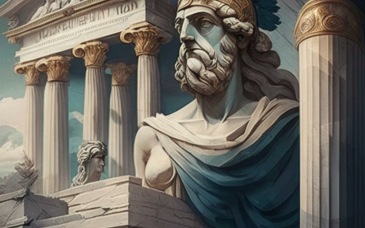Harper's Dictionary of Classical Antiquities (1898) stands as a timeless repository of knowledge, offering insights into the rich tapestry of classical history. Within its pages, the entry on Ctesias emerges as a fascinating exploration of an ancient Greek historian and physician. This post delves into the historical significance of Ctesias as presented in Harper's Dictionary, shedding light on the contributions and challenges posed by this enigmatic figure.
📜 Historical Context of Ctesias:
The entry on Ctesias in Harper's Dictionary provides a contextual understanding of this ancient figure who lived in the 5th century BCE. Ctesias, a Greek physician at the Persian court, not only tended to the health of Persian kings but also became a chronicler of historical events during a pivotal period in ancient history.
🏛️ Persian Court Chronicles:
Harper's Dictionary illuminates Ctesias's role as a historian chronicling the Persian court, offering a unique perspective on the Achaemenid Empire. Ctesias' firsthand experiences and access to royal circles provided him with a privileged vantage point, shaping his accounts of Persian politics, society, and the interactions with neighboring states.
🖋️ Historiographical Contributions:
The entry delves into Ctesias' historiographical contributions, exploring how his works influenced the historical narrative of his time. His notable works, such as "Persica" and "Indica," are discussed within the context of the challenges of separating fact from fiction in ancient historical writings.
🤔 Challenges and Criticisms:
Harper's Dictionary doesn't shy away from addressing the challenges and criticisms surrounding Ctesias's accounts. Ctesias has been both praised for his unique insights and criticized for potential biases, exaggerations, and inaccuracies. The entry engages with the scholarly discourse on evaluating the reliability of Ctesias as a historical source.
📚 Legacy and Influence:
The post explores how Harper's Dictionary reflects on the enduring legacy of Ctesias, recognizing his influence on subsequent historians and the impact of his works on shaping perceptions of the East in the ancient world. The entry sheds light on how Ctesias' writings left an indelible mark on the historical narrative of the Achaemenid Empire.
🔍 Scholarly Perspectives:
Harper's Dictionary of Classical Antiquities, being a product of its time, encapsulates the scholarly perspectives on Ctesias prevalent in the late 19th century. It provides a window into the methodologies and considerations scholars employed when grappling with ancient sources and historical interpretations during that period.
📖 Gateway to Further Exploration:
The entry serves as a gateway for readers to further explore Ctesias and the broader landscape of classical antiquity. Harper's Dictionary, with its concise yet informative entry, encourages curious minds to delve deeper into the historical nuances and debates surrounding Ctesias and his place in the historical discourse.
In the pages of Harper's Dictionary of Classical Antiquities (1898), the entry on Ctesias unfolds as more than a historical vignette; it is a portal to a bygone era, a glimpse into the complexities of ancient historiography, and an invitation for contemporary readers to navigate the historical threads woven by this enigmatic figure.

